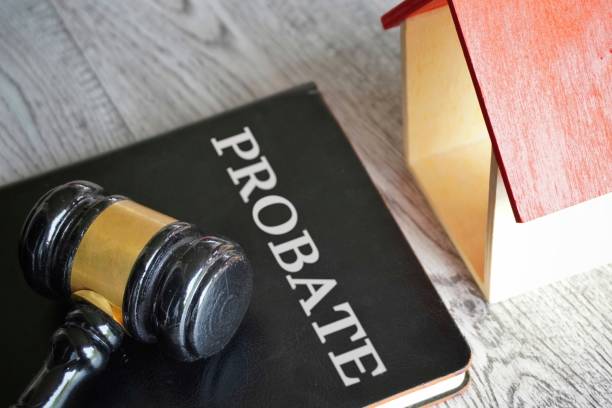A probate sale happens when someone passes away and their property goes through the probate court before it can be transferred or sold. In Southern California, this process has particular steps and regulations. It often involves listing with a probate realtor, a real estate agent with experience handling such sales. This guide explains what happens, step by step, and how a probate realtor helps.
What Is Probate?
When a person passes away, their assets, such as real estate, bank accounts, and other property, make up their estate. If the estate includes real estate and lacks proper planning (like a living trust), it usually must go through probate, a court process to validate a will (or lack of one), appoint someone to manage the estate, pay debts, and distribute what’s left to heirs.
In Southern California, the probate court in the county where the decedent lived handles the case. The court may appoint a personal representative, commonly known as an executor (if there’s a will) or administrator (if not).
Once appointed, the executor must inventory the estate, pay debts and taxes, and distribute assets, sometimes by selling real estate through a probate sale.
Why a Probate Sale?
A probate sale may be needed if heirs can’t or don’t want to keep the property, or if the estate needs to convert real estate into cash to pay debts or share assets fairly.
In California, a probate sale may also move faster when overseen by someone granted full authority under the Independent Administration of Estates Act (IAEA), though court oversight still applies in many cases.
Role of the Probate Realtor
A probate realtor knows how to handle the special rules of probate sales. They typically:
Manage proper listing, often on MLS, with a probate addendum so buyers know it’s a probate sale.
Handle disclosures. In California, while the usual Transfer Disclosure Statement (TDS) may not be needed, the executor must still share known facts using an Exempt Seller Disclosure form.
Help price the property realistically. The sale price must often meet at least 90% of the appraised value when court confirmation is required.
In places like Orange County, a probate realtor guides the sale and court steps and ensures the executor meets legal duties.
Sales With or Without Court Approval
A. With Court Approval
If the executor lacks full IAEA authority, the court must approve the sale:
The executor accepts an offer that is at least 90% of the appraised value (within a year).
The court confirmation hearing is scheduled, often 20 to 40 days later.
At the hearing, other buyers may overbid, generally by 5% plus $500, if they want to bid higher.
The court chooses the best and most viable bid.
The buyer usually pays a 10% deposit (requested by the executor but not legally required).
Once confirmed, the sale moves like a regular closing: escrow, payment, and distribution of net proceeds to the estate.
B. Without Court Approval (IAEA)
If the executor has full IAEA authority:
They can accept offers, negotiate terms and contingencies, and close without court confirmation.
Timing often moves faster and resembles a traditional sale.
Still needs a probate listing addendum and compliance with disclosure rules.
How Long Does It Take?
Probate sales in California typically take much longer than regular home sales, often nine months to several years. Formal probate (including inventory, court steps, sale, and distribution) can take nine to 18 months or more.
In counties like Orange or Los Angeles, expect more time if court hearings and overbids are involved.
Steps to a Probate Sale in Southern California
Step 1: Open Probate
The executor files a petition and notifies heirs.
The court appoints a representative.
Step 2: Inventory and Appraisal
The executor lists all estate assets.
Property appraised by a probate referee or qualified appraiser.
Step 3: Hire a Probate Realtor
Listings go live, include disclosures, and add addendums.
The real estate agent markets the property accordingly.
Step 4: Accept Offer
If the executor has full IAEA authority, they may accept and close like a standard sale.
If not, move to the court confirmation path.
Step 5: Court Confirmation (if needed)
Filing of petition for sale.
Hearing scheduled; bids accepted, including overbids.
The court confirms the best bid.
Step 6: Deposit and Closing
Buyer deposits (commonly 10%) depending on executor.
The property is sold "as-is," escrow closes, and funds go to the estate.
Benefits and Risks for Buyers and Sellers
For Buyers:
Chance to buy below market value.
Clear rules and structured offers.
But sales are often "as-is." No repairs, limited contingencies.
The deposit or down payment may be higher and due sooner.
For Sellers/Executors:
Court ensures a fair process for heirs and creditors.
A probate realtor offers guidance and saves time.
But they must follow rules, publish notices, disclose known issues, and may face overbids.
County-Specific Notes: San Diego Example
In San Diego, the county-run Public Administrator handles probate real estate sales:
Listings appear on MLS with special contracts.
Offers must meet the listed price; a 10% deposit is required.
Properties sold “as-is,” with no contingencies.
Escrow starts within 15 days of the Notice of Proposed Action or court confirmation.
Other Southern California counties have similar processes but may differ in notice rules or auction steps.

Why a Probate Realtor Matters
A probate realtor brings expertise:
Knows court forms (probate addendum, disclosure).
Helps set realistic pricing tied to appraisal.
Manages marketing, offers, and closing.
Coordinates signaling to heirs, attorneys, and the court.
Helps avoid legal mistakes that delay sale.
In Southern California, where property values are high and legal rules vary by county, their role is vital.
Final Thoughts
A probate sale in Southern California involves legal steps, court oversight (unless under IAEA), and specialized listings through a probate realtor. It takes longer than normal home sales, but may present a buying opportunity. For sellers, it ensures the estate is handled according to law. If you're involved in such a process, working with a probate realtor and perhaps a probate attorney will help you move through each step clearly and effectively.
Handling a probate sale in Southern California doesn’t have to be stressful. Let Jack Ma Real Estate guide you through every step with the expertise of a trusted probate realtor. Contact Jack Ma Real Estate today to make your probate sale smooth, efficient, and successful!
FAQs About Probate Sales in Southern California
Q1: How long does a probate sale usually take in California?
A probate sale can take anywhere from 9 months to 18 months or longer, depending on court schedules, appraisal delays, and whether court confirmation is required.
Q2: Can you buy a probate property below market value?
Yes, buyers may find probate properties priced below market. However, sales are typically "as-is," and buyers may need to invest in repairs or updates.
Q3: Do all probate sales in California require court approval?
No. If the executor has full authority under the Independent Administration of Estates Act (IAEA), court approval may not be required. If they only have limited authority, court confirmation is necessary.
Q4: What happens at a probate court confirmation hearing?
At the hearing, the initial offer is presented, and other buyers may overbid. The court then approves the highest and most suitable offer.
Q5: Why should I hire a probate realtor instead of a regular agent?
A probate realtor specializes in probate rules, required disclosures, and court processes. They help executors avoid legal mistakes and make sure the property is marketed correctly to potential buyers.


